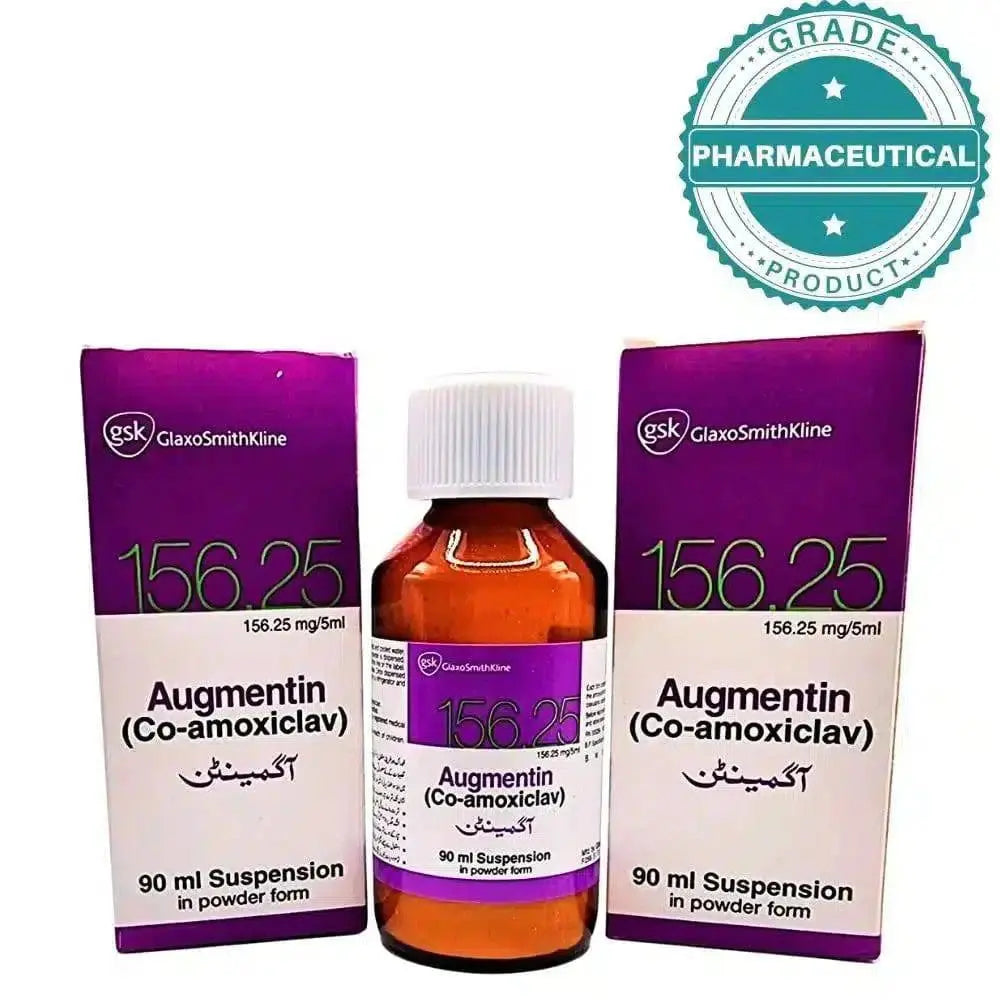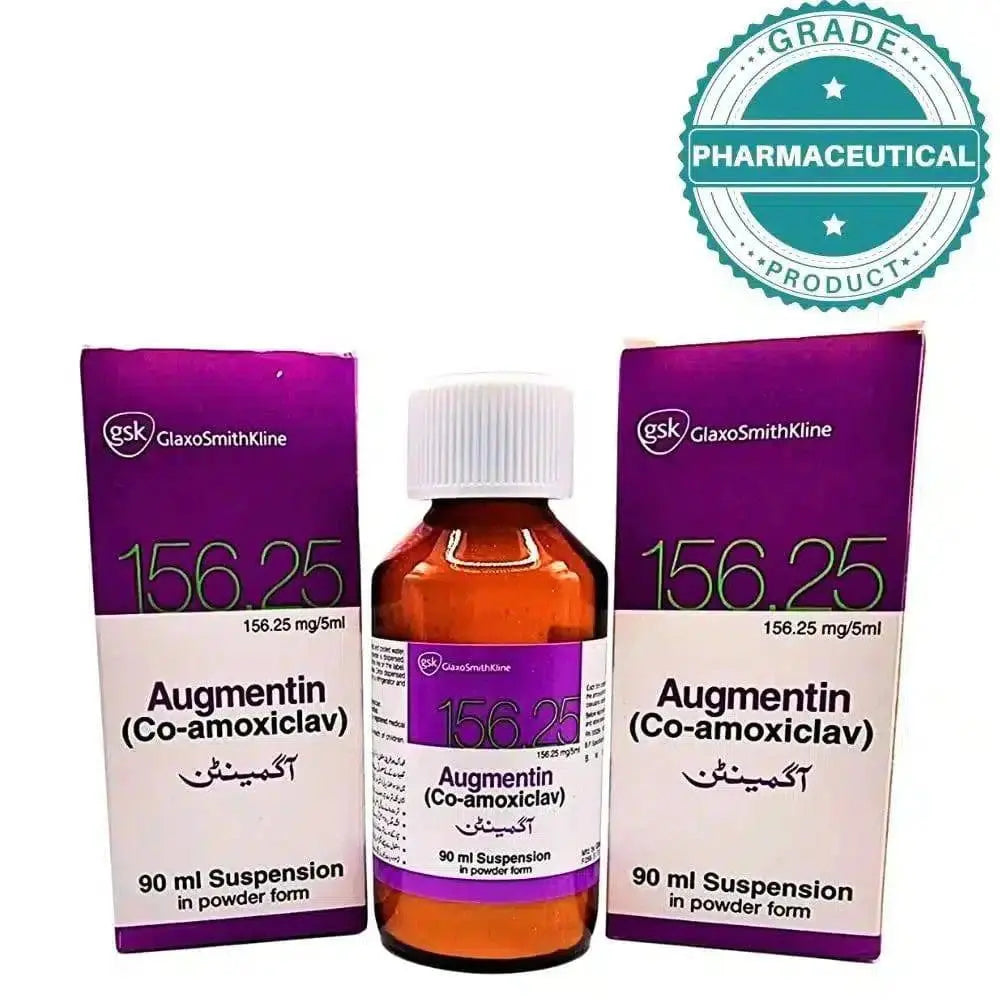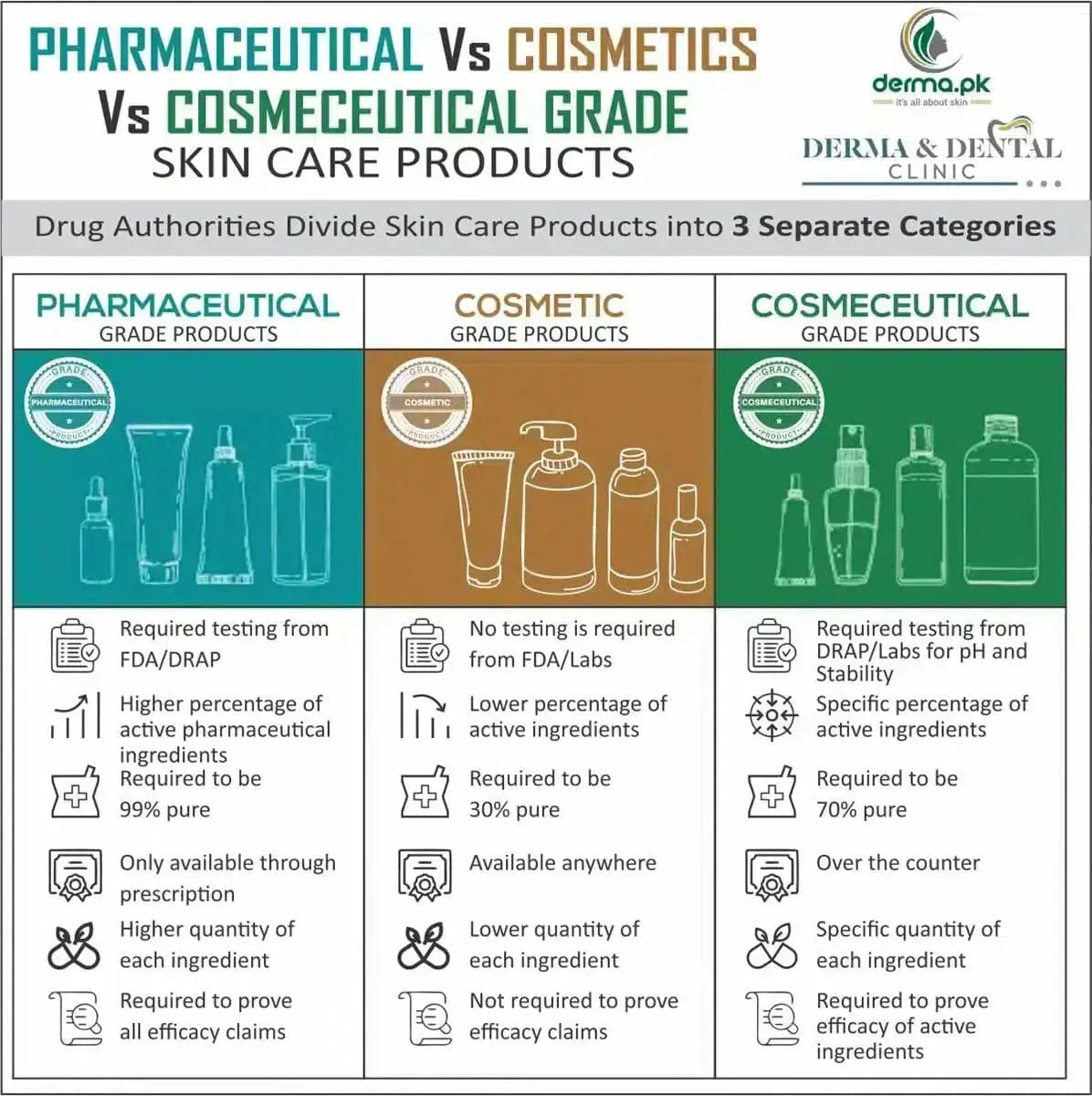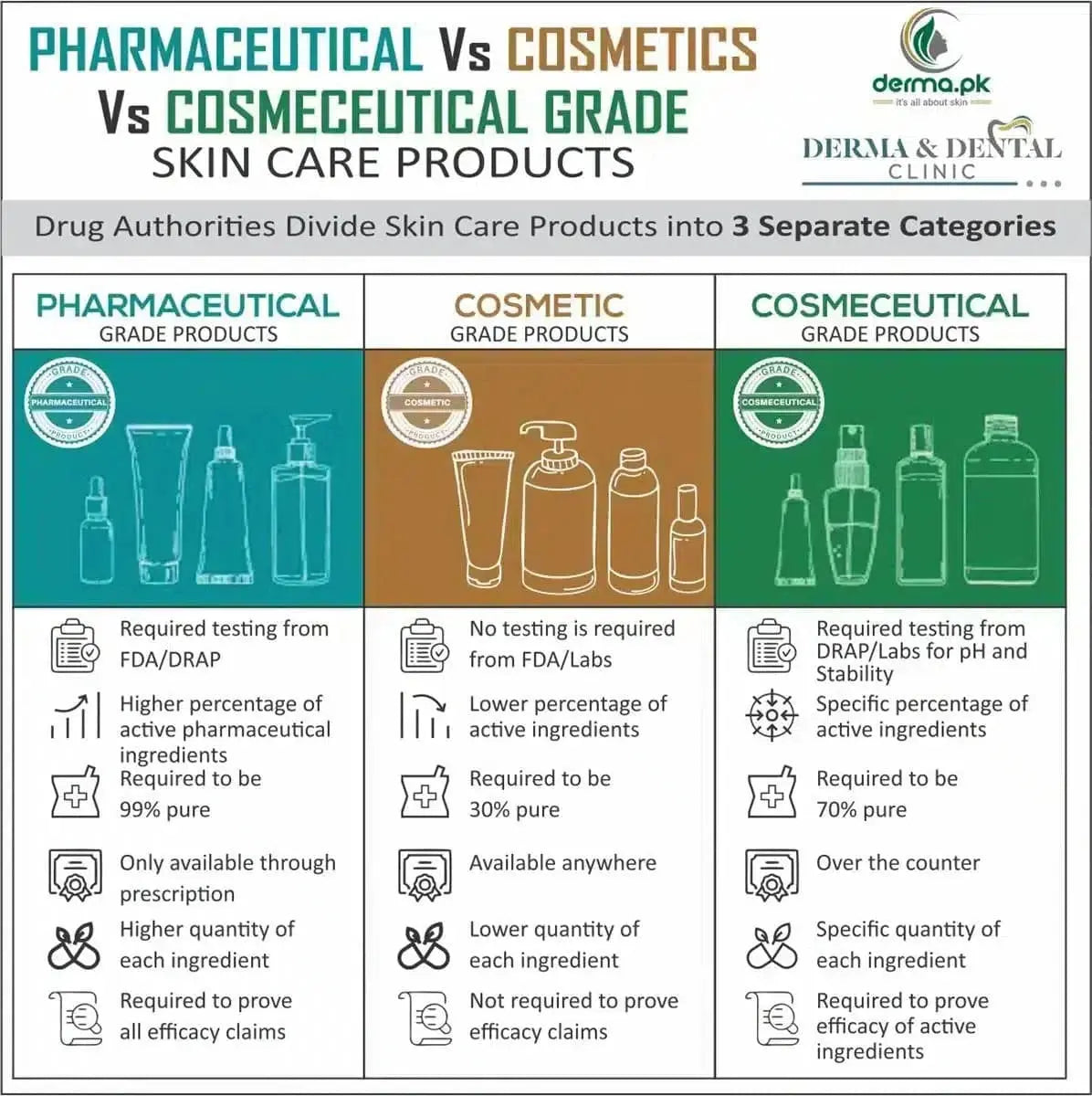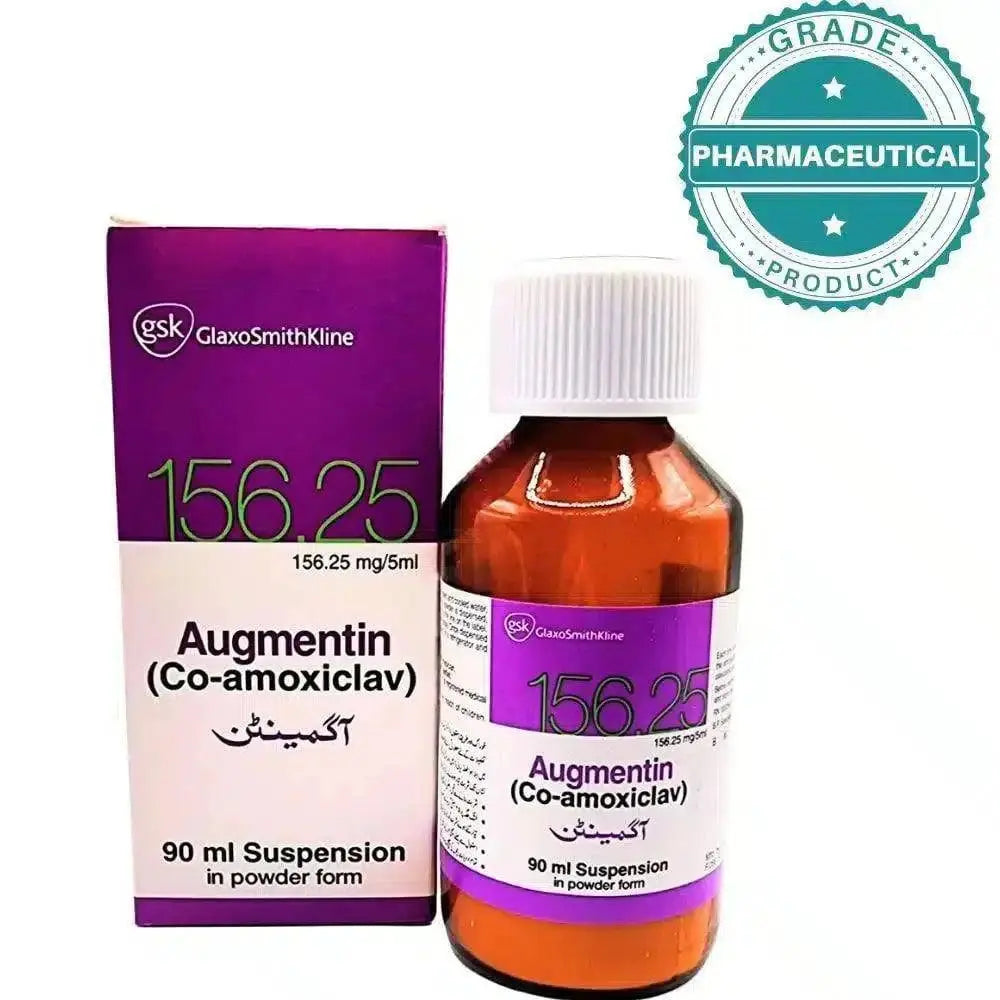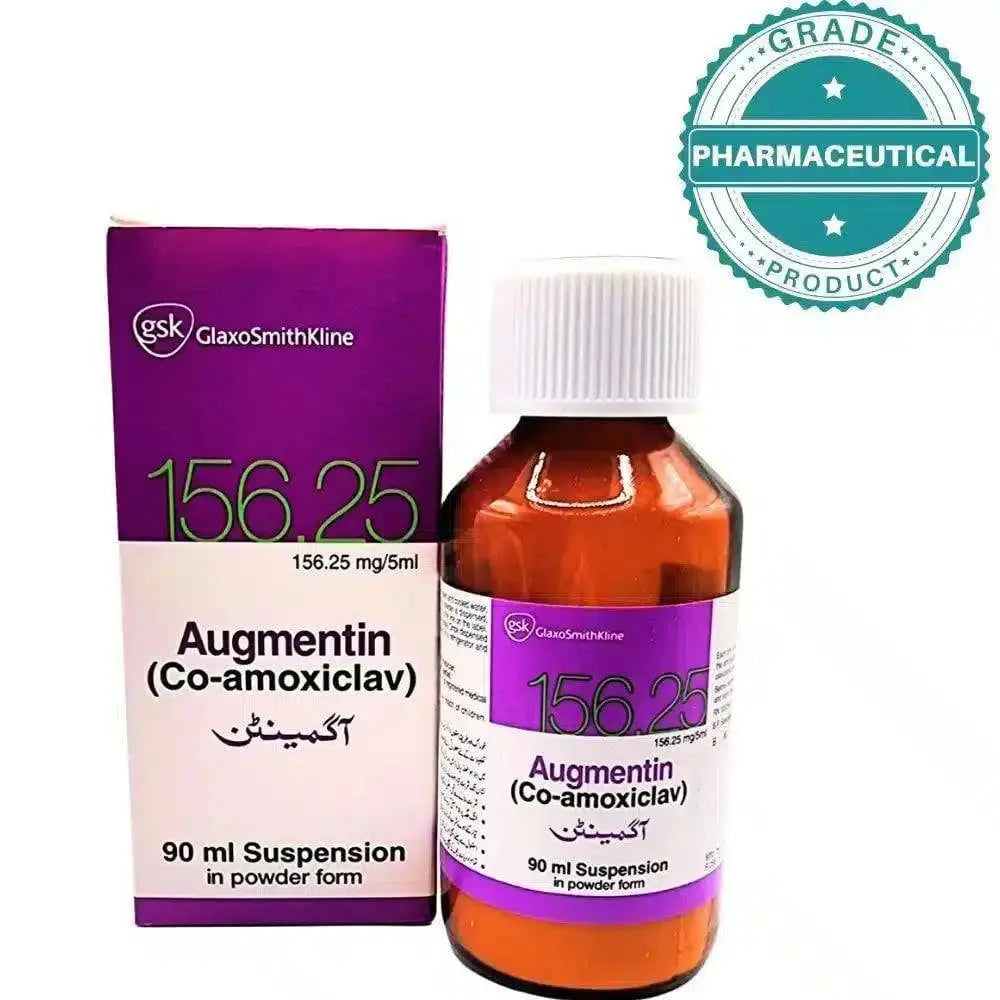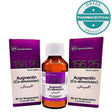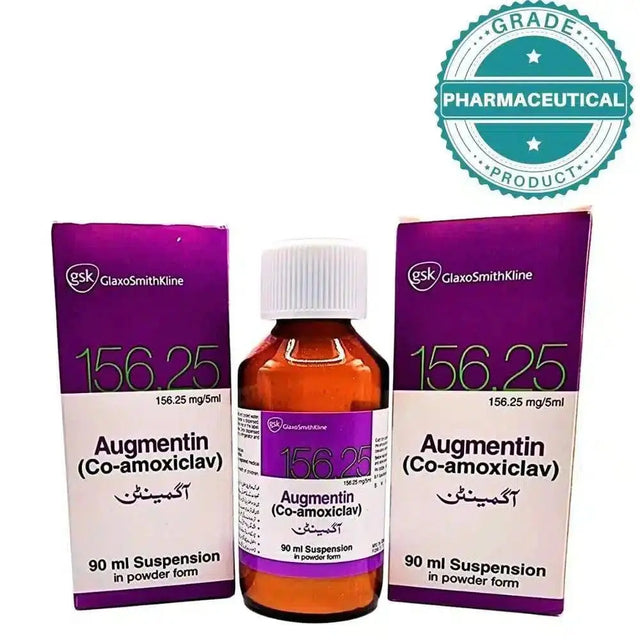Augmentin 15625mg5ml Suspension - Broad-Spectrum Antibiotic
Augmentin 15625mg5ml Suspension - Broad-Spectrum Antibiotic is backordered and will ship as soon as it is back in stock.
Couldn't load pickup availability

Description
Description
Augmentin 156.25mg/5ml Suspension is a reliable broad-spectrum antibiotic specifically formulated for children, combining the potent effects of Amoxicillin and Clavulanic Acid. This effective formulation is tailored to combat a variety of bacterial infections, making it a vital part of your child's healthcare routine. With its dual-action formula, Augmentin effectively targets common infections while also addressing those caused by resistant bacterial strains, ensuring a thorough approach to treatment.
This suspension is suitable for managing a wide range of infections, including respiratory, skin, and urinary tract infections, making it a versatile option for parents seeking effective solutions for their children's health needs. The pediatric formulation is designed for easy administration, allowing your child to take their medication with minimal fuss and discomfort.
The mechanism of action behind Augmentin is both efficient and straightforward. Amoxicillin works by inhibiting the synthesis of bacterial cell walls, preventing bacteria from multiplying and spreading. Meanwhile, Clavulanic Acid plays a crucial role in safeguarding Amoxicillin from being broken down by beta-lactamase enzymes, which enhances its effectiveness against tougher, resistant strains of bacteria.
As a penicillin-class antibiotic, Augmentin 156.25mg/5ml Suspension requires a prescription, emphasizing the importance of using this medication under the guidance of a healthcare professional. This ensures that it is safe and appropriate for your child's specific condition.
For optimal results, be sure to administer the prescribed dose as directed by your physician. It is important to shake the suspension well before use to ensure proper mixing of the ingredients. Store the medication at room temperature and keep it out of reach of children to maintain safety.
Before using Augmentin, discuss any potential allergies, particularly to penicillin-class antibiotics, with your healthcare provider. It is essential to complete the entire prescribed course of treatment, even if symptoms improve before finishing the medication. If you notice any adverse effects, consult your doctor promptly.
For further inquiries about Augmentin 156.25mg/5ml Suspension, please reach out to info@dermatologists.pk. Ensure your child receives the care they need with this effective antibiotic suspension that supports their health and well-being.
Shipping & Delivery
Shipping & Delivery
We strive to make your shopping experience seamless with fast and reliable delivery services! Here’s everything you need to know about our shipping and delivery policies:
Nationwide Shipping Offer
- Flat Rate Delivery: Enjoy nationwide delivery for just 299 PKR! (Limited time offer; subject to change without prior notice.)
- Free Shipping: Orders exceeding 5,000 PKR qualify for free delivery.
Order Processing
- Orders received during office hours are typically processed and dispatched on the same day.
- Orders placed after 5 PM will be shipped the following business day.
Delivery Timeline
- Punjab: Next business day delivery.
- Sindh & KPK: Typically delivered within 2 business days.
- Gilgit-Baltistan & Balochistan: Allow 3-4 business days for delivery.
Delivery timelines are approximate and may vary depending on unforeseen circumstances.
Order Tracking
- Once your order is dispatched, you’ll receive a tracking number via email or WhatsApp.
- Track your shipment easily by visiting our website at www.dermatologists.pk/track or clicking the "Track Your Order" button on our homepage.
Important Information for Smooth Delivery
- Ensure your address is complete and accurate (include house number, landmarks, or references).
- Provide a primary phone number and an additional secondary contact number for the courier.
- In case of a failed delivery, you can request a reattempt by contacting us or coordinating directly with the courier service.
Reliable Courier Partners
We partner with TCS, M&P, and PostEx to ensure fast and dependable delivery to your location.
Thank you for choosing us! If you have any questions or need assistance, feel free to contact us anytime.
90%
Customers Recommend This Product
Quality
Effective Skincare You Can Trust
100%
Authentic & Effective

